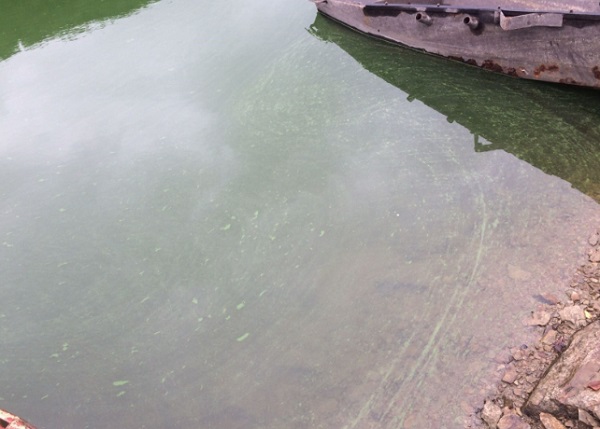 Cyanobacteria in the Rommwiss in 2017;
Cyanobacteria in the Rommwiss in 2017;
Luxembourg's Ministry of the Environment, Climate and Sustainable Development and the Water Management Administration have issued an alert concerning the presence of cyanobacteria, also known as "blue-green algae", at the Weiswampach lake.
Following the detection of this algae at the "Rommwiss" beach on Lake Haute-Sûre last month, the authorities have intensified the monitoring of bathing waters in Luxembourg. It is in this context that a proliferation of cyanobacteria was detected in the Weiswampach lake.
The Luxembourg Institute of Science and Technology (LIST) has since confirmed the presence of the following species of cyanobacteria: Microcystis and Anabaena. These bacteria can cause health problems in humans and animals following the production of toxins. In fact, a concentration of 10 μg / l of microcystin was measured, thus exceeding the alert threshold of 4 μg / l.
As a result, a ban on swimming and all nautical activities has been imposed with immediate effect at the Weiswampach lake.
In addition, the Water Management Administration, in consultation with the Health Directorate, has recommended that the public neither consume fish caught in this lake nor allow dogs or other pets drink water from the lake.
The ban on bathing and all nautical activities at "Rommwiss" beach remains in force, although bathing is still authorised for the time being at other official bathing beaches located along the Haute-Sûre lake. Bathing also remains permitted at the Remerschen ponds, where cyanobacterial proliferation has yet to be detected.








